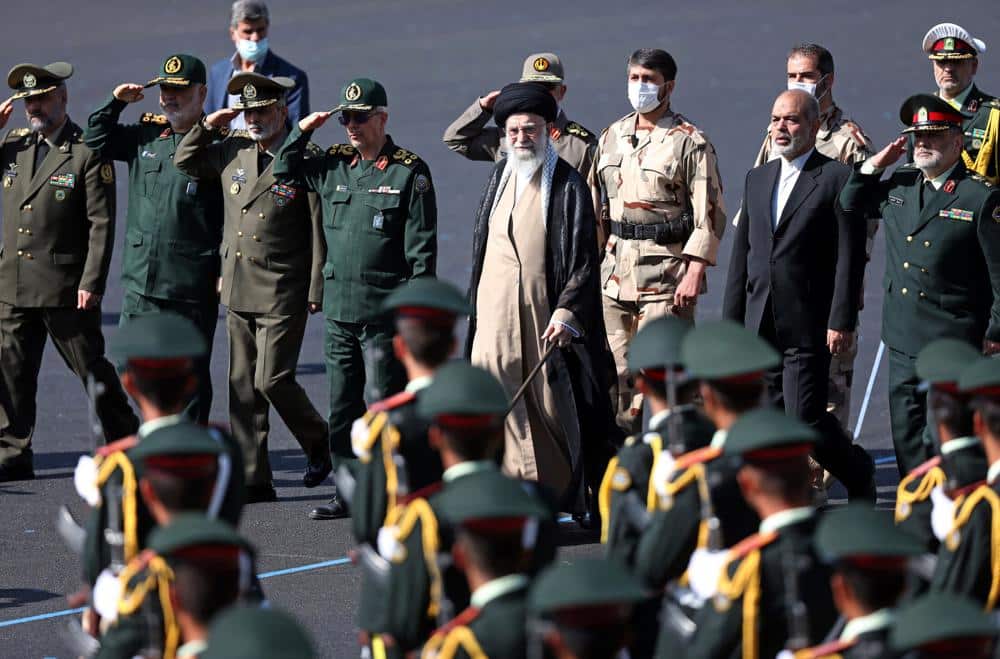The European Union is contemplating whether to label the Islamic Revolutionary Guard Corps as a terrorist organisation.
Iran’s Revolutionary Guards (IRGC) have warned Iranians that Saturday will be their last day of protesting against the recent death of Mahsa Amini, in a sign that the country may intensify its already severe crackdown on widespread rebellion.
On September 13, Amini, 22, died in police custody while visiting Tehran with her younger brother.
In an interview with ARD on Sunday, German Foreign Minister Annalena Baerbock said we will soon impose further sanctions on Iran, as well as listing the Islamic Revolutionary Guards Corps as a terrorist organization.
Germany announced last week that it was strengthening Iran’s entry barriers beyond the already imposed EU sanctions.
Iran’s revolutionary guards issued a stern warning to students last week, but their admonition was ignored as students protested against the regime at Tehran University on Sunday.
Demonstrators were assaulted at a memorial service for victims of a shooting at a major Shiite shrine in southern Iran, according to Iran’s semi-official Tasnim news agency.
Tasnim said that several students had been wounded without specifying how badly.
Footage on social media allegedly showed Iranian security forces firing tear gas and live ammunition at students protesting against Ayatollah Ali Khamenei.
Universities have become bastions of opposition, playing a crucial role in the protest movement.
Hardline pro-government students at several universities across the country had gathered to commemorate a deadly ISIS-claimed attack on a mosque in Shiraz that killed 13 people on Wednesday, including women and children.
Antigovernment protesters joined the ceremonies at the Islamic Azad University, shouting “freedom, freedom, freedom.”
Iran has repeatedly claimed that foreign powers were behind the protests despite failing to provide evidence.
The unrest has become one of the most serious threats to Iran’s ruling regime since the 1979 Islamic Revolution.
The demands for the theocracy’s demise started with demands for the abolition of the state-mandated hijab for women but quickly grew to include all demands for democratic reform.
According to Human Rights Activists in Iran, an NGO in the country, at least 270 people have been killed and 14,000 have been arrested in the protests that have swept across 125 Iranian cities.
Since October 24, Iran’s authorities have been hearing the cases of at least 900 protesters charged with “corrupting the Earth”—a phrase signifying an attempt to overthrow the government. The death penalty can be imposed on those convicted.
Image Credit: Office of the Iranian Supreme Leader via AP



















